Intro
Senior dog dental care is a crucial aspect of ensuring your furry companion’s overall health and well-being as they age. Just like humans, dogs can develop dental issues that can lead to pain, discomfort, and even serious health complications if left untreated. In this blog post, we will explore the importance of senior dog dental care and provide you with expert tips and tricks to help you master your aging pup’s oral hygiene routine.
Understanding the Importance of Senior Dog Dental Care
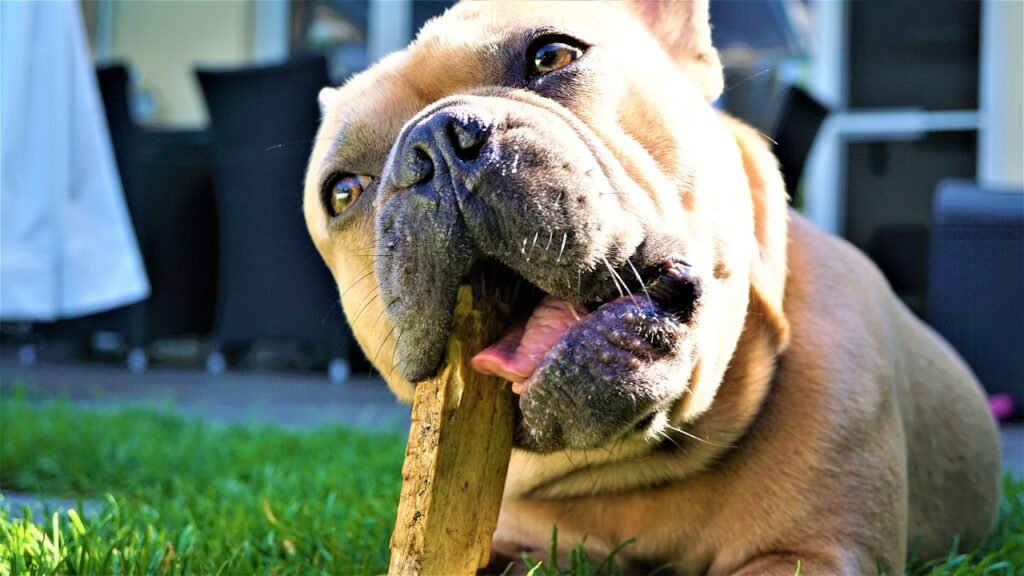
As our canine companions enter their senior years, they face an increased risk of developing dental problems that can significantly impact their health and happiness. The aging process naturally predisposes them to issues such as gum disease, tooth loss, and infections, which can be both painful and detrimental to their overall well-being. Ensuring diligent dental care during these golden years is not just about maintaining their oral hygiene; it’s about preserving their quality of life. Effective dental care can prevent the onset of serious complications that might arise from neglected oral health, such as heart and kidney diseases linked to chronic dental problems.
Engaging in proactive dental maintenance not only mitigates the risk of painful conditions but also plays a crucial role in ensuring that our senior dogs continue to enjoy their meals, playtime, and those special moments of bonding without the shadow of dental discomfort.
Recognizing the pivotal role of dental health in their overall physiological state underscores the essence of senior dog dental care. It’s a commitment to their health that honors the companionship they’ve provided over the years, ensuring they remain as vibrant and joyous as ever, even in their later stages of life.
Recognizing Signs of Dental Issues in Senior Dogs

Being observant of your senior dog’s dental health is paramount, as early detection of issues can significantly impact their comfort and overall health. Key indicators of dental distress include persistent bad breath, which is more than just a nuisance—it’s a warning sign. Additionally, watch for gums that are inflamed, bleeding, or unusually red, as these are clear signals of gum disease. Changes in eating habits, such as hesitancy to chew or eat, can suggest dental pain, while drooling more than usual might also indicate oral discomfort.
Another telltale sign is the presence of loose or missing teeth, which not only affects their ability to eat but can also lead to more serious health problems if bacteria enter the bloodstream through diseased gums. If your senior dog exhibits any of these symptoms, it’s crucial to take action by consulting with a veterinarian. Early intervention can prevent further deterioration of their dental health and ensure they continue to enjoy their senior years with minimal discomfort. Being proactive about these signs can make a world of difference in the life of your aging companion.
Preventative Measures to Keep Your Senior Dog’s Teeth Healthy

To safeguard the dental health of your senior dog, establishing a consistent oral hygiene routine is paramount. A cornerstone of this regimen involves the daily brushing of your dog’s teeth with products designed specifically for canines. This practice helps mitigate the accumulation of plaque and tartar, fundamental contributors to dental diseases. Introducing your dog to the routine gradually and employing a gentle approach will ensure that this becomes a stress-free experience for both you and your senior pet.
Equally important is the strategic use of dental treats and toys that are engineered to bolster oral health. These items work by mechanically cleaning the teeth through the natural action of chewing, thereby aiding in the reduction of plaque. Opt for products that are appropriate for your dog’s age and size to maximize benefits while minimizing risks.
By taking these proactive steps, you not only contribute to maintaining the oral hygiene of your senior dog but also foster a living environment that promotes their health and happiness. Incorporating these practices into your daily routine is a testament to the deep bond and commitment you have towards ensuring the well-being of your aging companion.
Home Remedies for Maintaining Dental Health in Senior Dogs

Exploring the realm of home remedies can offer supportive care in maintaining your senior dog’s dental health. Incorporating natural ingredients into their dental care routine can provide gentle yet effective ways to support oral hygiene. Coconut oil, known for its antibacterial properties, can be used to gently brush your dog’s teeth, offering a natural solution to fight against plaque and tartar build-up. Similarly, a small amount of apple cider vinegar added to your dog’s drinking water can help in maintaining a balanced pH in the mouth, discouraging the growth of harmful bacteria.
Additionally, incorporating chopped parsley into your dog’s meals can serve as a natural breath freshener, promoting fresher breath with its antimicrobial properties. Before integrating these home remedies into your senior dog’s dental care routine, consulting with your veterinarian is essential. This ensures that each remedy is suitable and safe for your pet, aligning with their specific health needs and dietary requirements.
Here’s a simpler recipe for homemade dog toothpaste:
Ingredients:
– 1/2 cup baking soda – 1 tablespoon coconut oil – Water (as needed for consistency)
Instructions:
1. Mix baking soda and coconut oil in a bowl.
2. Add water gradually until you reach a paste-like consistency.
3. Store in an airtight container. To use: – Apply a small amount to a toothbrush or finger brush. – Gently brush your dog’s teeth. – Reward your dog for cooperation. Always consult with your vet before starting any new dental routine for your dog.
These natural approaches, when combined with regular dental care practices, can contribute significantly to your senior dog’s oral health, offering a holistic strategy to dental maintenance that is both effective and reassuringly gentle.
When to Consider Store-Bought Medications
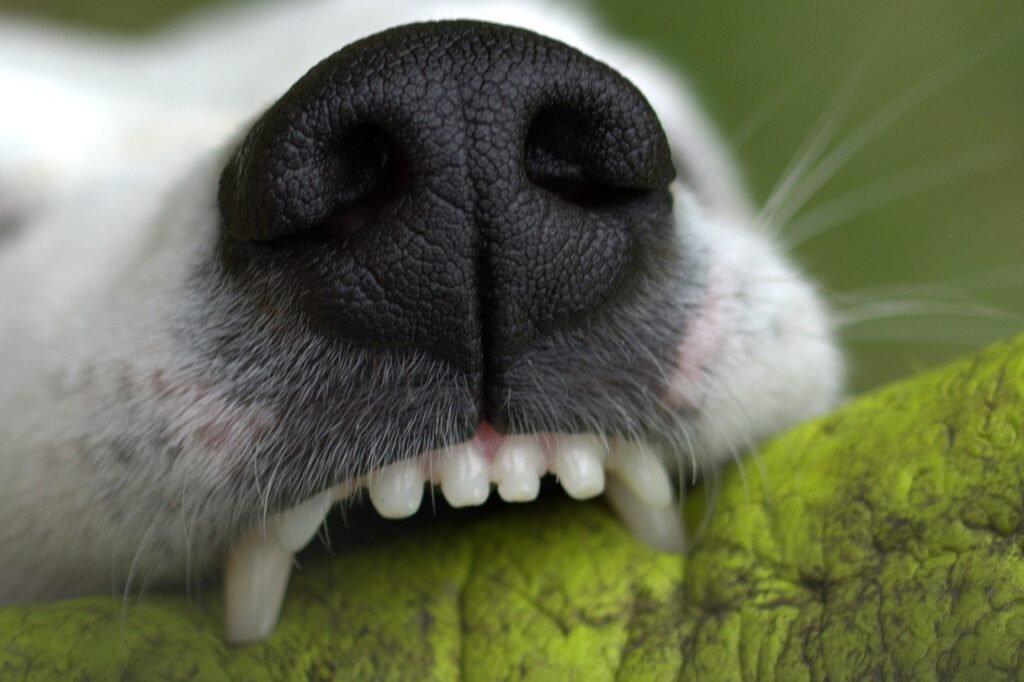
At times, the path to maintaining your senior dog’s dental health may necessitate the use of store-bought medications, a step often recommended by veterinarians for additional support. These products, which can range from dental gels and sprays to water additives, serve as an adjunct to the daily dental care regimen, offering an extra layer of protection against plaque and tartar buildup, while also promoting healthier gums and fresher breath.
It is critical to adhere strictly to the usage instructions provided with these medications and to observe your dog’s reaction closely. Certain products may be better suited to your dog’s specific needs or health conditions, so a conversation with your vet can provide valuable guidance in selecting the most appropriate option. This judicious integration of store-bought medications, when aligned with a comprehensive oral health plan, can significantly enhance the efficacy of your senior dog’s dental care routine, ensuring their mouth remains as healthy as possible.
5 Best Australian Products for Senior Dog Dental Care

Based on Australian retail data and popularity, here are five of the best store-bought dental care products for senior dogs in Australia, along with their brand names:
1. Greenies Dental Treats: Greenies are widely popular dental treats for dogs, offering a range of options tailored to different sizes and breeds, including senior dogs. These treats help clean teeth, freshen breath, and reduce plaque and tartar buildup.
2. VetIQ Dental Chews: VetIQ offers dental chews specifically designed to promote oral health in dogs, including senior dogs. These chews are formulated with ingredients to help reduce tartar and plaque buildup, promoting healthier gums and teeth.
3. Oral Care Gel by Tropiclean: Tropiclean offers an oral care gel for dogs, which provides a quick and easy way to clean teeth and freshen breath. It’s suitable for senior dogs and helps maintain overall dental health.
4. DentaStix by Pedigree: Pedigree’s DentaStix are a popular choice for dog dental care, including senior dogs. These treats are designed to reduce plaque and tartar buildup, promoting healthier gums and teeth with regular use.
5. Rogz Gumz Dental Toy: Rogz Gumz offers dental toys designed to promote dental health in dogs, including senior dogs. These toys are designed to massage gums, clean teeth, and provide entertainment, contributing to overall dental care.
These products are commonly available in pet stores and online retailers across Australia and are trusted by many pet owners for their effectiveness in promoting dental health in senior dogs. Always consult with your veterinarian to ensure that the chosen product is suitable for your senior dog’s specific dental needs.
Professional Dental Treatments for Senior Dogs
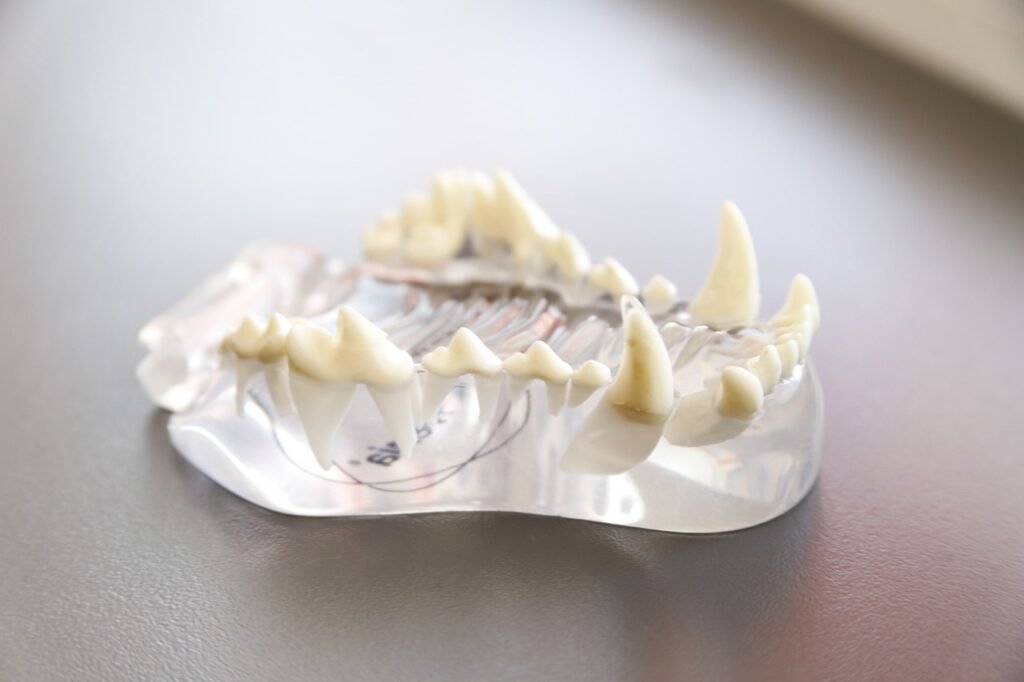
Professional dental treatments play a vital role in a comprehensive dental care strategy for senior dogs. With age, our beloved pets may require more than just at-home care to keep their dental health in check. It’s recommended to seek the expertise of a veterinarian who can perform detailed dental cleanings under anesthesia.
These cleanings go beyond what is achievable at home by thoroughly removing plaque and tartar build-up, checking for any signs of dental disease, and treating them before they escalate into more severe health issues. The frequency of these professional cleanings will depend on your dog’s specific dental health needs, which your vet can assess during regular check-ups.
Engaging in such professional treatments is a testament to the dedication you have towards maintaining the health and happiness of your senior dog. It underscores the importance of a proactive approach to dental care, ensuring that your senior pet’s golden years are as comfortable and joyous as possible, free from the pain and discomfort of dental ailments.
The Connection Between Diet and Dental Health in Senior Dogs
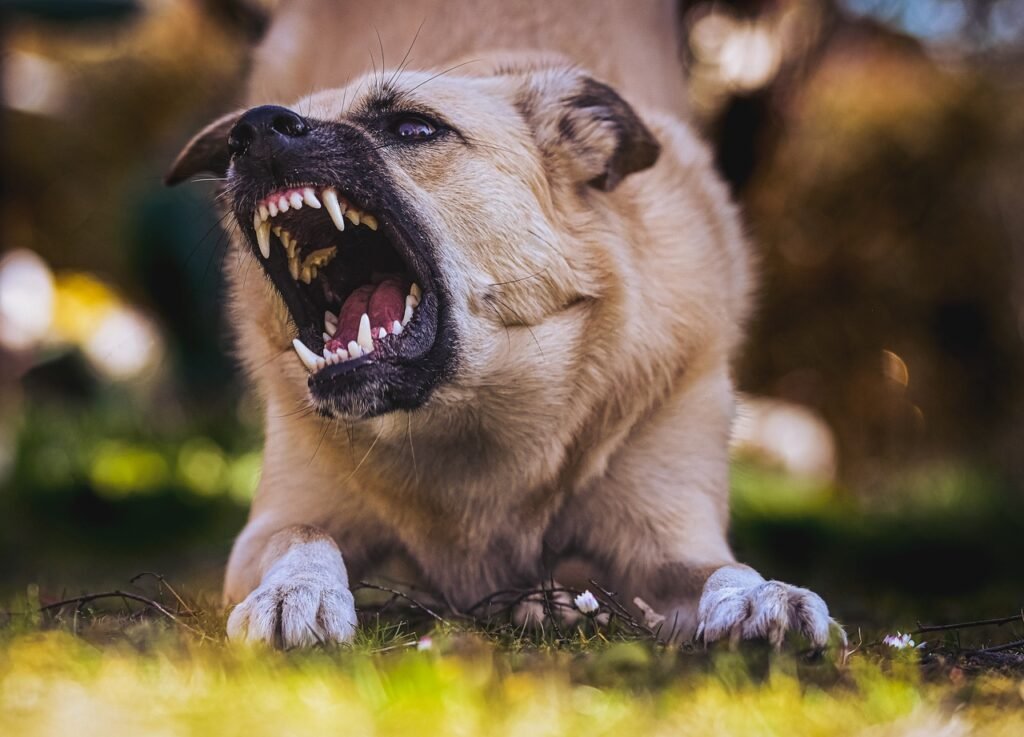
The intricate link between what our senior dogs eat and the state of their dental health cannot be overstated. A carefully chosen diet plays a pivotal role in preventing dental issues and maintaining oral hygiene as our dogs age. Nutritious, well-balanced meals that require some degree of chewing can naturally help in scraping away plaque from the teeth, much like a natural toothbrush. Incorporating crunchy, raw vegetables into their diet can also aid in this cleaning process. However, it’s important to steer clear of foods high in sugars and starches, as these can contribute to the build-up of plaque and tartar, leading to dental problems over time.
Consultation with a veterinarian is invaluable when selecting the optimal diet for your senior dog’s dental health. They can recommend specialized diets that support dental hygiene, including kibble designed to reduce plaque accumulation through its mechanical action during chewing. Remember, while treats are an essential part of bonding and training, opt for dental-friendly options that contribute to their oral health rather than detracting from it. By aligning your senior dog’s diet with their dental care needs, you play a critical role in minimizing the risk of dental diseases, ensuring they continue to enjoy their meals, and maintain a radiant, healthy smile well into their golden years.
How to Make Dental Care a Positive Experience for Your Senior Dog
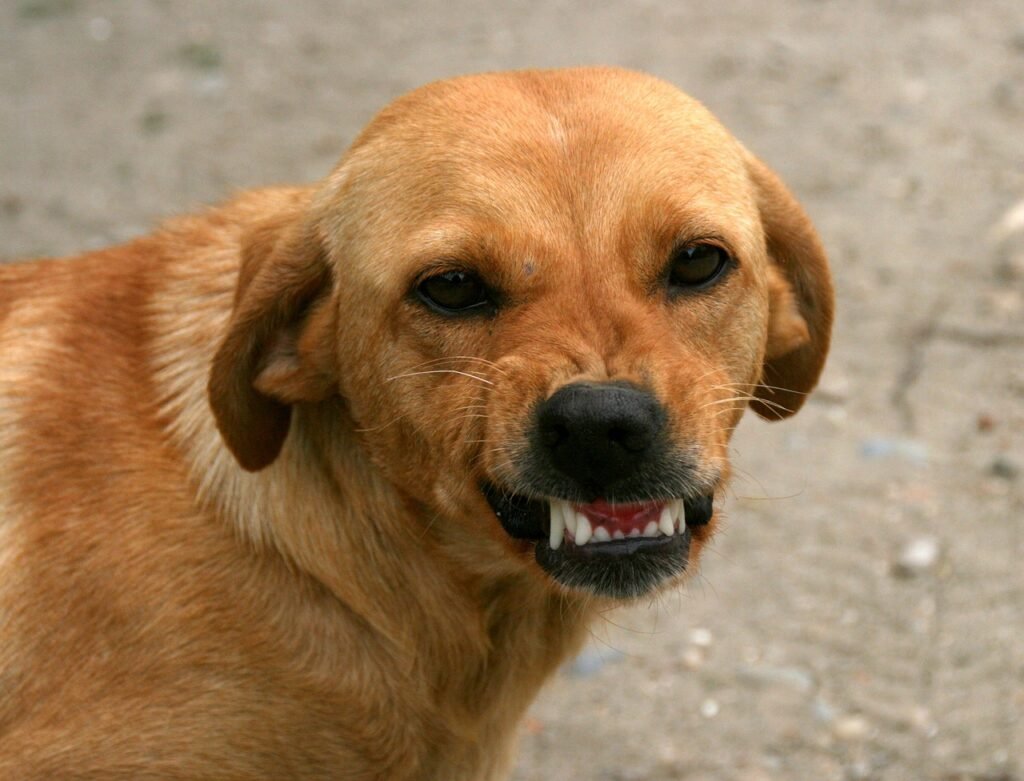
Ensuring that dental care becomes a positive aspect of your senior dog’s routine involves patience, understanding, and a touch of creativity. Begin by introducing dental hygiene activities slowly, pairing them with lots of praise and some of their favorite treats. This association of dental care with positive outcomes can significantly ease your dog’s apprehension, transforming a potentially stressful experience into an enjoyable bonding time.
Utilize flavored toothpastes designed for dogs—chicken, beef, or peanut butter flavors can be particularly enticing—to turn tooth brushing into a treat rather than a chore. It’s also beneficial to choose a quiet, comfortable location free from distractions, allowing your dog to relax and feel secure during these sessions.
If your senior dog is initially resistant, consider starting with gentle gum massages to get them used to the sensation before moving on to a toothbrush. Always approach dental care activities with a calm and reassuring demeanor, as your senior dog will pick up on and mirror your emotions. Creating a routine that incorporates these elements of comfort, reward, and familiarity is key to fostering a positive dental care experience for your aging companion.
Staying Ahead of Dental Issues: A Routine Check-Up Guide
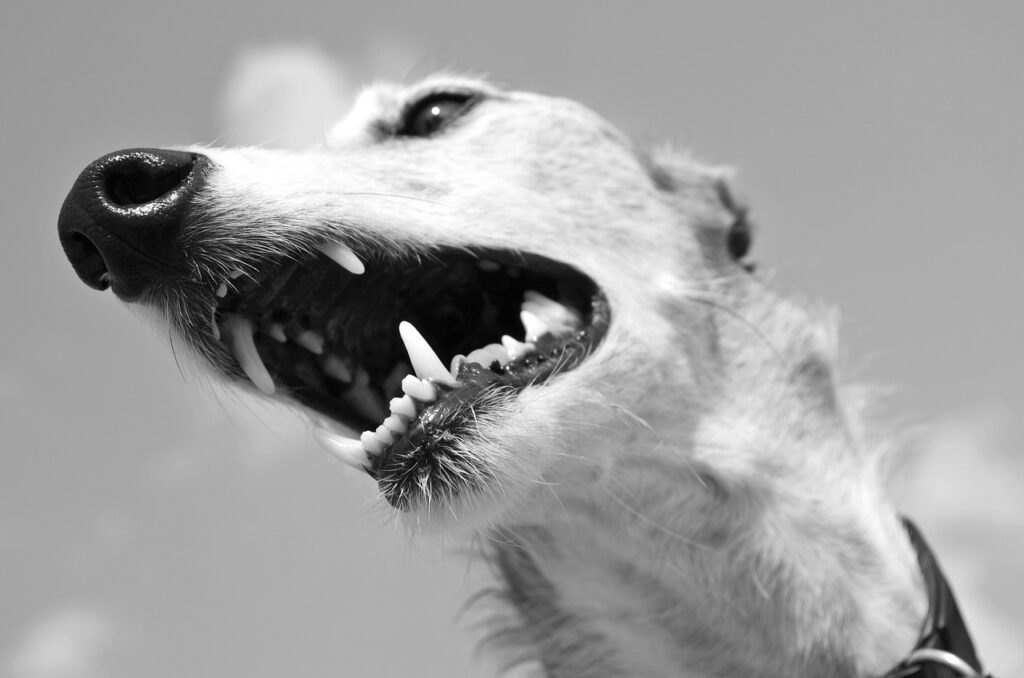
Maintaining vigilance through regular dental check-ups is essential for preempting potential dental complications in your senior dog. A thorough examination by a veterinarian can unveil early signs of oral health concerns, allowing for timely intervention. These visits are more than just preventative measures; they are opportunities to tailor your dog’s dental care routine to their evolving needs, ensuring their oral hygiene adapts with age.
During these check-ups, your vet may recommend specific treatments or changes to your home care practices, keeping your senior dog’s dental health on track. By integrating these professional assessments into your routine, you’re not just safeguarding your dog’s dental well-being; you’re ensuring they continue to thrive, enjoying those cherished moments of joy and companionship without the shadow of dental discomfort.

